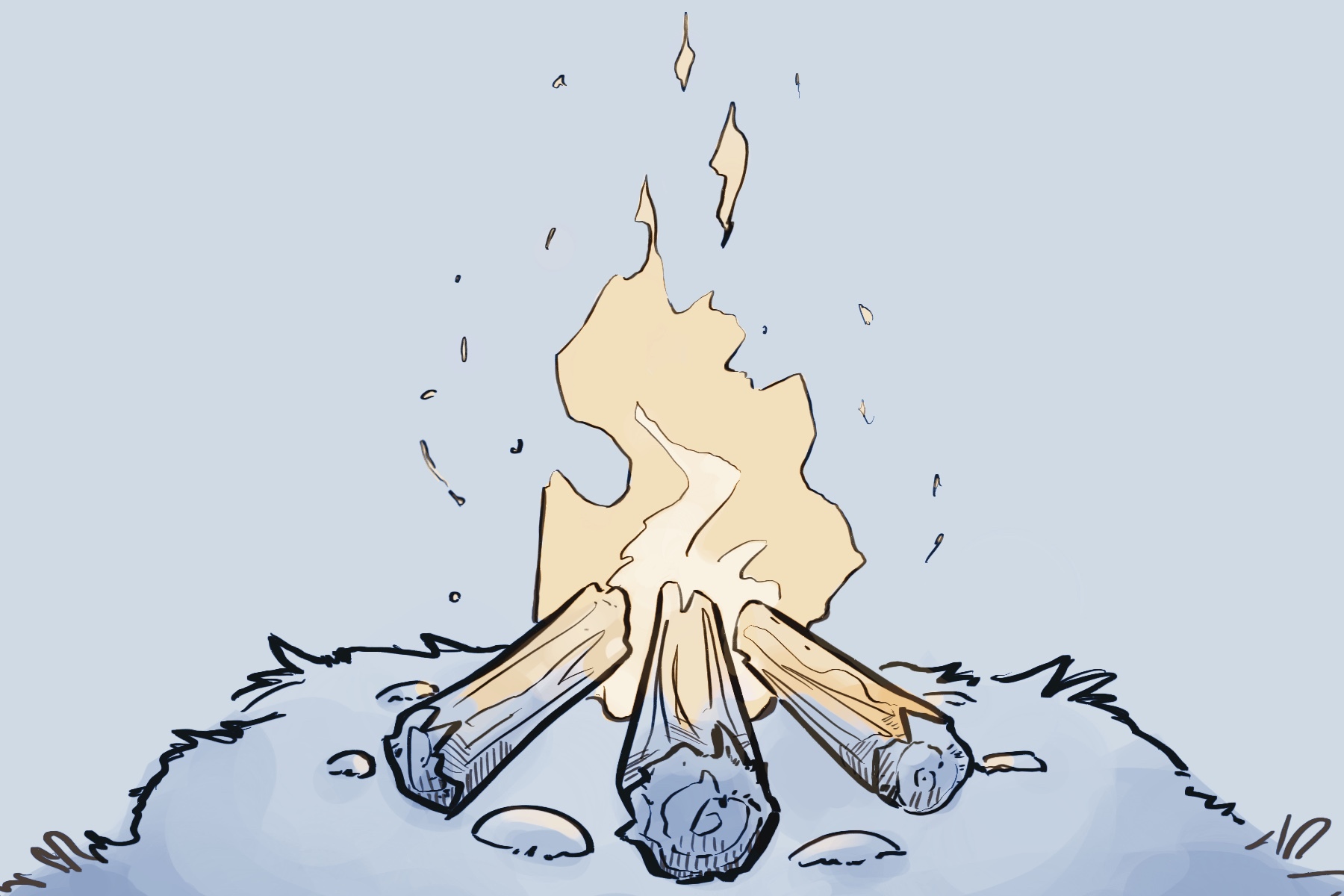It’s summer, so it’s the time to grab your tent, pack up your ice chest and head out to the great outdoors for some camping! The best memories come from sitting around a campfire with friends and family trading songs, skits and spooky stories. While there are many contemporary scary stories to choose from, some of the best have been waiting around for hundreds of years to be told in the perfect campfire setting. Here are three stories from classic literature that will have you shivering in your tent, even in the hot summer heat.
“The Boarded Window” by Ambrose Bierce
Bierce was a master of spooky, wooden cabin horror literature, so you can’t go wrong with any of his work, but “The Boarded Window” is perfect. Set in the forest during the period of westward expansion, the story recounts the tale of a reclusive couple that lives in an isolated house. Later in their years, the woman dies, and the husband starts to prepare her body for burial. Due to grief and the quirky behaviors that come with being a recluse, the husband fails to finish preparing her body. As day transitions into night, the light in the house goes out and the man falls asleep in a chair.
He’s awoken in the middle of the night to a terrible racket of glass breaking and terrifying screams. He shoots his rifle at the window and in the muzzle flash he catches the outline of a panther attempting to carry off his wife’s body. Overcome with terror, he passes out and is woken by the serene sounds of the forest. On the floor lays his wife’s body, torn apart by the giant feline. In between the teeth of his wife is a piece of the giant cat’s ear.
Walking back to a tent with the knowledge that not only are there giant forest cats to be afraid of in the woods, but possibly the undead as well, is sure to keep any camper wide awake, recoiling at the slightest crack of a branch. There are many compilations full of Ambrose Bierce stories, the best one being “Ghost and Horror Stories of Ambrose Bierce,” which includes 24 spooky tales.
“Dracula’s Guest” by Bram Stoker
Best known for the classic novel “Dracula,” Stoker is the grandfather of stories about the undead. “Dracula’s Guest” was originally written as a prelude to his most famous work, but was omitted by publishers because it was considered superfluous to the story. In this short story, an unnamed narrator travels through a wooded valley on his way to Transylvania. As the weather turns poor, he takes shelter among some trees and it’s there that the full moon illuminates his situation, and he finds himself in a cemetery. He wanders through and comes across an ornate tomb with a stake driven through it.
His first instinct is to run, but just as the horror of the scene hits him, the weather gets increasingly worse as he’s caught in a torrent of hail. His only option is to take shelter in the doorway of a massive grave nearby and as he waits, the door creaks open. Just then, lightning lights up the inside and he sees the body of a beautiful woman with flushed cheeks and bright red lips. Another lightning strike hits the tomb’s monument, and he escapes just in time before the building is destroyed, leaving behind the now screaming woman. He loses consciousness and is awoken by a wolf on his chest licking his neck. Shortly after, he is discovered by soldiers who chase the wolf away. Although the man is not injured, he walks away from the ordeal with pains in his neck. After his rescue, he learns it was Count Dracula who sent the soldiers to look for him.
If listeners find themselves in a wooded graveyard illuminated only by moonlight, they should run the other way no matter the weather. More classic vampire literature can be found in the “Penguin Books of Vampires” where you’ll also find John Polidori’s “The Vampyre,” which started the evolution of vampires from blood-sucking horrors to irresistible charmers.
“The Facts in the Case of M. Valdemar” by Edgar Allan Poe
This story doesn’t take place in a forest, but it’s horrifying enough that it won’t matter when it’s being recounted over the campfire. As a warning, the descriptions are very gory. In the story, a hypnotist is interested in whether humans can be hypnotized to the point of escaping death. He finds the perfect patient/victim in his friend Ernest Valdemar, who is suffering from a debilitating case of tuberculosis. On the brink of death, Valdemar consents to the experiment and is immediately put into a trance. He is left in this state for seven months with no heartbeat, no breathing and skin that begins to look and feel corpse-like. Whispers come from Valdemar’s throat, and he begs his friend to let him out of the trance. The hypnotist attempts to awaken him, but the body of his friend immediately liquifies as seven months of death and decay catch up to him.
Poe is a master of his craft: The story is told with intensity and creativity that will leave campers astounded at the horror of the scene. There are countless anthologies of Poe’s work, but you might have to look for a complete book of all of his works to find this one included.
All three of these classic authors have multitudes of short stories and other literature that are perfect to take along on any camping trip. Other classic literature writers include Mary Shelley, H.P. Lovecraft and Nathaniel Hawthorne. The book “The Dark Descent” features many of the pieces from this article woven together with stories from contemporary authors like Stephen King, Ray Bradbury and Shirley Jackson. It’s a hefty book, but it’s the perfect guide to spooky scares that will leave listeners chilled with terror all summer long.

















